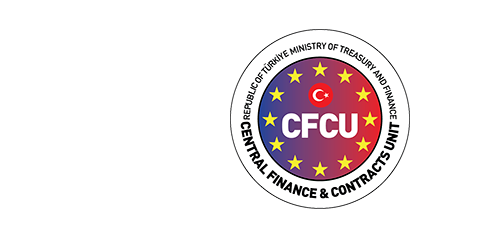05 June 2020
Strengthening EU and Turkey relations is vital for regional and global stability and security
Article by EUROCHAMBRES Vice President and President of the Union of Chambers and Commodity Exchanges of Turkey, Rıfat Hisarcıklıoğlu, on what is needed for EU-Turkey relations to work to the benefit of an economic recovery post COVID-19.
Encouragingly, the effects of COVID-19 on health seems to be slowing down, which helps us to overcome the first shock and focus on our disrupted economies. According to the Spring 2020 version of the European Economic Forecast published in May, EU GDP is forecast to contract by about 7 ½ % this year, far deeper than during the Global Financial crisis in 2009, and to rebound by only 6% in 2021. According to IMF data, the global economy is projected to contract sharply by –3 percent in 2020. More than that the recovery is uncertain as many variables exist including the pathway of the pandemic.
The COVID-19 crisis has demonstrated dramatically that we all live in an interdependent world, where inevitable spill over effects cannot be prevented, be it in the health or economic sphere. The pandemic has also directed many governments, international organizations, institutions and of course, individuals to question many issues.
Long and complex supply chains became the first weak link hit by the crisis. One of the issues that pandemic led to questioning was to reorganize supply chains. Companies are likely to reorganize their global supply chains and they will start looking for ways of mitigating supply chain risks such as broadening the number of suppliers and shortening long trade routes. It seems that countries with a high labor force, sufficient logistics capacity and not very dependent on China may become new production centres in the coming period.
Turkey’s strategic location at the crossroads of Europe and Central Asia offers geographical advantage. Taking into account the competitive manufacturing capacity and proximity to the Eurozone importance of deepening Turkey-EU trade relations and exploiting the untapped potential cannot be underestimated. During the COVID-19 Turkey has already successfully mobilized its production eco-system. Garments manufacturer turned their production lines from clothing to masks and some defence companies have started to manufacture respiratory machines designed by a Turkish start up. Such a quick manoeuvrability is the result of the flexibility of Turkish entrepreneurs and this also contributed to the global fight against coronavirus in which Turkey has provided medical supplies more than 50 different countries. Additionally, how adequate health services, medical devices, and PPE[1] in Turkey is also proved to the whole world during this pandemic.
One of the issues that Turkey can contribute is the discussion on the role of the EU in the international system. As Josep Borrell has already mentioned during the 9 May Europe Day speech, EU’s response to the coronavirus will define global role of the EU for the years to come. EU should play a leading role not only in trade and security but also in areas like migration, digital economy, cyber security, and disease control. Therefore, EU needs to rebuild a new multilateralism, in which the European Union can and will play an important role. I believe that this new multilateralism mentioned by Josep Borrell cannot be “exclusionary” anymore. It should be “inclusionary” multilateralism.
However, effective multilateralism requires committed and reliable partners. Indeed, Turkey is the most important partner of the EU on the issues that EU faces challenges such as terrorism, migration, radicalization, xenophobia, security of the energy supply and currently we have seen that Turkey is one of the reliable and strong partners on disease control as well. During the COVID-19 crises Turkey demonstrated that it is a country reliable and loyal to their international alliances.
Although various scenarios presented for the global order after COVID-19, no matter what scenario, we should admit the reality of strengthening EU and Turkey relations is vital for regional and global stability and security.
As TOBB[2] which represent 1.5 million enterprises in Turkey, our main mission is to enhance economic growth, increase the competitiveness of our members and improve our country’s business and investment environment. In my capacity as the President of TOBB I believe that although Turkey-EU relations have suffered in the recent period, it is high time to review and strengthen our relations. In these difficult times we can start with the economic and commercial issues, the EU should not refrain from taking steps in matters that would be to its own benefit. It goes without saying that untapped potential of the Turkey-EU Customs Union should be exploited by deepening and widening our economic relations. This is needed for the economic recovery of Europe and Turkey post COVID-19.
Finally, we should not also ignore the idea that countries can only come out of this bottleneck collectively, otherwise the problems in one country will affect others, based on the notion that “Nobody is safe until everyone is safe”.
Rıfat Hisarcıklıoğlu, EUROCHAMBRES Vice President and President of the Union of Chambers and Commodity Exchanges of Turkey
Further information: Dominic Boucsein, Tel. +32 2 282 08 50, boucsein@eurochambres.eu
Press contact: Ms. Karen Albuquerque, Tel. +32 2 282 08 62, albuquerque@eurochambres.eu
All EUROCHAMBRES’ press releases can be downloaded from http://bit.ly/ECHwebsite
[1] Personal Protective Equipment
[2] TOBB : The Union of Chambers and Commodity Exchanges of Turkey- (https://www.tobb.org.tr/Sayfalar/Eng/AnaSayfa.php)
EUROCHAMBRES Article Rıfat Hisarcıklıoğlu EU-Turkey trade relation post COVID-19





